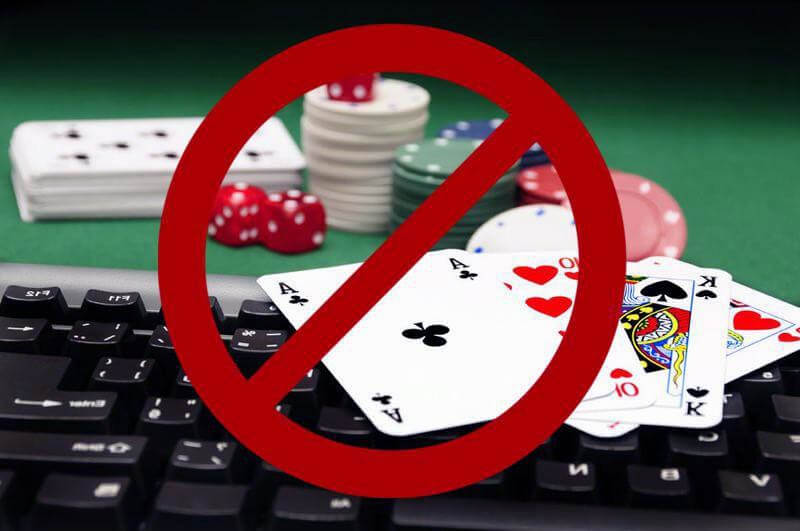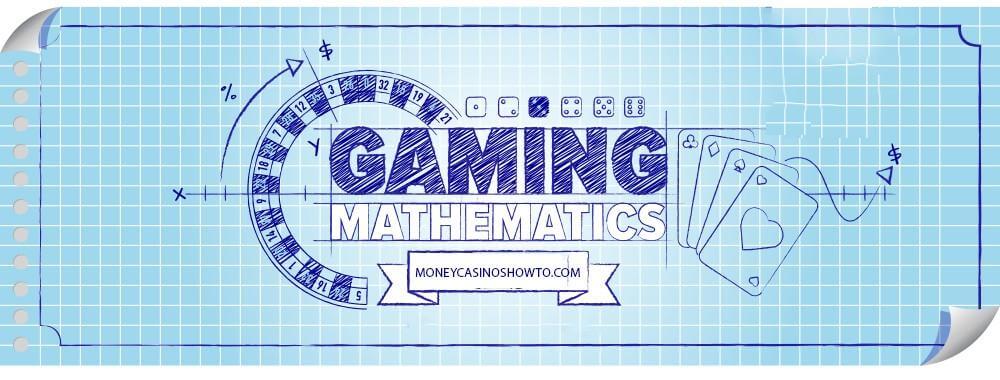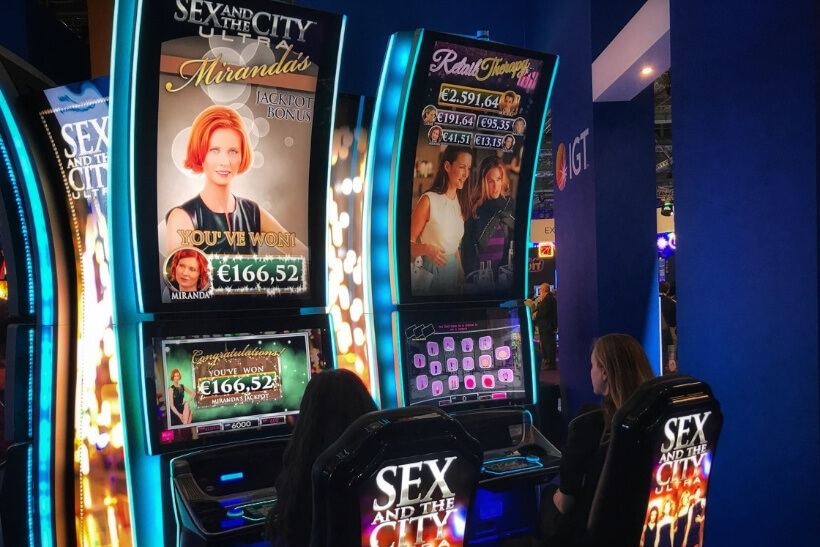Myths About Online Casinos for Real Money

The gambling world is full of myths. The most common misconceptions, such as “most players are addicted” and “the casino always wins”, have been going viral since the founding of the first gambling house.
With the growth of web casinos, new myths have emerged. The most prevalent one is that “playing online is always unsafe”. But how come it could be true as there are loads of government authorities that regulate the industry?
In this article, we will introduce you to the most popular online gambling myths that people continue spreading to date. You will understand why you shouldn’t blindly rely on these myths and how exactly the regulators make online gambling completely legal and transparent. Dozens years from now but we bet you still believe in 2-3 myths below. Read the article for revealing moments.
Top 6 Online Gambling Myths
Let’s begin with an obvious but still impressive statement: online gambling is going to ‘kill’ traditional casinos. In 2018, the overall revenue of the online gambling industry exceeded €45 billion with the total market volume of almost €46 million, according to Slotegrator. The experts also predict that the industry will reach €88 billion by 2023, so we can expect that land-based casinos will be moving towards online gambling more actively.
Overall, desktops, browsers, and mobile gadgets are extremely convenient. They suit the style of modern gamblers (particularly the young) who opt for flexibility. It’s impossible to gamble in brick-and-mortar casinos, while carrying out daily activities. Thus, online platforms deliver a new type of experience – gambling on the go. Still, old-fashioned gamblers have a few significant misconceptions about online gambling.
Without further ado, here’s the first myth!
1. Online Casinos Are Illegal

When we talk about regulations, online casinos are quite similar to their land-based alternatives but they’re controlled by other authorities and have to meet a bit different requirements. Respectively, it means that online gambling platforms are legal in the countries where governments regulate this industry, as well as in the states where local authorities don’t prohibit online gambling.
You can use the Wikipedia list and the interactive guide for European states to check the current legal status of different gambling forms across countries.
The most important thing you should know about online gambling regulation is the licensing system. There are several governments which issue licenses for online casinos:
- Curacao
- The Isle of Man
- Malta
- Spain
- The United Kingdom
The list isn’t exhaustive but the mentioned countries feature the most reputable licenses. We strongly suggest playing in licensed casinos only. The websites without official permits are usually scam and rogue platforms, so you should always check for the required licenses and/or other certificates, which prove the casino’s fairness.
In a nutshell: online casinos’ legality varies from country to country, but online gambling is permitted in the majority of areas.
2. You Can Cheat the System with…

This myth is strongly associated with land-based gambling. A lot of players believe that they can count cards or use math strategies to get better odds, which is partially true for traditional games. The catch is that real-world croupiers use a limited number of cards or decks in blackjack, poker, baccarat, and other similar games. Hence, there are some chances to analyze which cards are still in the game to plan your further moves. Casinos fight this practice and can even ban visitors for it. However, online gambling is completely different.
To understand the real state of things, you should remember about two types of online projects:
- Video games. These are the programs or applications with different rules/interfaces but always with the same mechanism behind – random number generator (RNG). You can’t cheat when playing these games, because they’re based on a complex computer algorithm. For example, blackjack apps use an unlimited number of decks. In this case, each hand is a completely new one.
- Live games. This is similar to brick-and-mortar gambling. Long story short, you get access to tables with real dealers located in broadcasting studios. They stream the game using cameras. Despite dealers being real people, it’s also almost impossible to cheat in the game because you don’t have a clear vision of the dealer’s position (the live broadcast can be of poor quality or lagging).
It’s still possible to improve your odds, both online and offline, using skills and strategies. You can find a lot of cheat sheets for blackjack, reminders for poker, and even betting schemes. You can train hard at numerous online tournaments with AI and real opponents. But it’s all about luck and skill without any guaranteed tech approaches. Online gambling is fair.
In a nutshell: math tricks can be useful in land-based casinos, but they become obsolete when playing online because video games are controlled by machines.
3. Slots in Casinos Are Rigged

Well, now you may ask: And what about rigged machines with preprogrammed odds? Really, scam casinos often place rigged slots with modified casino winning chances and odds. However, you should remember the golden rule: don’t play in scam casinos, always check licenses, and find user reviews.
When we talk about fair online casinos, you can rest assured that the games listed there are not rigged. First things first, platforms utilize RNGs with unbiased controlling mechanisms. This means, they really deliver random results each time you press a button to spin the reels. Specific independent companies check RNGs and issue certificates of fairness.
The most reputable teams are:
To make online gambling even more transparent, some casinos switch to blockchain-based platforms. These platforms are decentralized, with no central unit of control. Thus, any player can access the site and find full information about RNG results, and check whether they are fair using a special algorithm.
Blockchain games are called provably fair because you don’t even need third-party agencies to ensure that the casino is impartial. Besides, software development companies that deliver games to online casinos are often big-name businesses, such as BetSoft Gaming or NetEnt. Their reputation is worth more than any gain.
In a nutshell: RNGs are tested by various organizations regularly, but you can also access decentralized casinos with provably fair games.
4. Online Casinos Allow Underage Gambling

People fear that online casinos are dangerous for children, who can easily create accounts and gamble without limit. It is possible, but all reputable and licensed casinos feature pretty complicated registration and verification processes.
Firstly, you should verify your identity using a national ID or any other legal document. Then, you will be asked to link a deposit method (usually, a credit or debit card) which also requires certain user identification. Kids just can’t pass all these authentication steps, including KYC/AML checks of the casino itself (outlined in terms & conditions) and bank verifications. If this isn’t enough to persuade you, here’s one more proof. The UKGC plans to tighten the age verification rules and even ban casinos from offering demo games in order to cut the risk of underage gambling.
Moreover, there are numerous governmental and volunteer organizations that promote responsible gambling, help users who are at risk, and oversee casino activities. Modern online casinos realize the importance of fair gambling, because in the long term they can benefit more from informed gamblers who play regularly, than from addicts who lose everything at once.
In a nutshell: underage gambling is barely possible because of strict KYC/AML policies, multi-step verifications, and community oversight.
5. Casinos Don’t Pay Big Amounts

Unlike other myths from the list, this one has a certain background. The thing is casinos want your money in your personal account, and not in your bank or pocket. Due to this fact, websites always try to slow down the withdrawal process. So, you can expect long pending periods, notifications with offers to cancel the transaction and gamble a bit more, several ID checks with requests for scanned documents, etc.
However, if you really want to get your money, you will get it. The progressive jackpot is accumulated at the level of software provider, and then transferred to the operator for payouts. The operator can try and delay the process, but you shouldn’t hesitate to demand what is yours. Governments, licensing organization, testing labs, and responsible gambling agencies control every step of the regulated online casinos, so they simply have to pay all the winnings, including the biggest amounts.
Just ask Jon Heywood about his €17 million jackpot in Mega Moolah. Obviously, casinos meet all requirements because they care about their reputation and want to earn more without issues. Still, it is important to understand that small casinos can go bankrupt because of high rollers. That is why they take precautionary measures such as limiting the max bet size and so on.
Finally, there are high roller casinos that opt for extremely big bets. They cater to the players, who are able to spend hundreds of thousands per night. Means, they deal with rich and powerful gamblers, including politicians, top managers, and celebrities. It’s better to have a perfect reputation when you work with such clients, you know.
But, again, don’t forget about scam sites which really never pay. Avoid them if you don’t want to lose your hard-earned money.
In a nutshell: casinos always pay because they are regulated and controlled by various authorities. Still, they will try to convince you to not cash out.
6. All Gamblers Are Addicts
Although gambling addiction is a real mental health disorder that has been recently recognized by physicians, not every gambler is an addict. There are a lot of people who play to relax or even earn money. Some of them consider online gambling as a hobby while others are professional players.
In different countries, the share of addicted gamblers among all citizens varies between 0.5% to 2.5%. And now, compare these numbers with the statistics related to other disorders or addictions (provided by Our World in Data):
- Depression – 4% of the global population
- Anxiety disorders – 4%
- Bipolar disorder – 0.6%
- Alcohol addiction – 1.4%
- Drug addiction – 0.9%
The gambling problem is less common than various forms of depression and anxiety disorders. Online casinos promote a healthy approach to gambling. When you have easy access to games, you’re less likely to become an addict if you aren’t at risk already. To help vulnerable groups of gamblers, responsible gambling organizations set up international and national help centers. Companies like GambleAware, GamCare, Gamblers Anonymous, NCPG, NCRG, and RGC hold webinars, real meetings, and other activities to help people play safe.
In a nutshell: online gambling addiction is less common than depression. Plus, various teams protect gamblers from irresponsible casinos and other threats.
Tips on Finding a Reliable Casino
Probably, you’re already tired of our buzzing about legal casinos, licenses, responsible gambling, and all that stuff. Well, we just want to improve your gambling experience. A lot of newcomers refuse to enjoy online gambling because they previously had problems with scam sites. That’s why you want to find legit trusted casinos. Here are some final tips for you:
- Check licenses and testing certificates.
- Read real user reviews.
- Explore terms and conditions.
- Find secure payment methods.
- Deal with reputable software providers.
- Talk to casino support teams.
- Try gameplay with a small amount of money.
Good luck and play safe!



